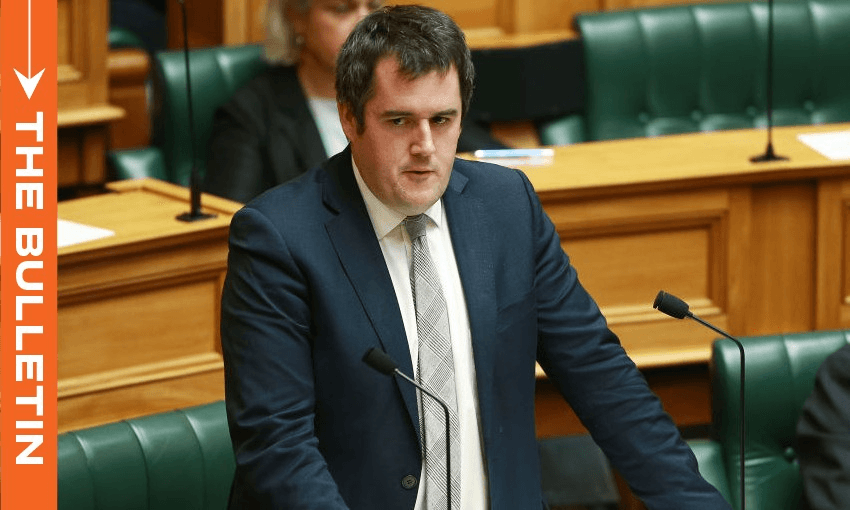The agency was found to be underperforming and ‘not financially viable’, explains Stewart Sowman-Lund in this extract from The Bulletin. To receive The Bulletin in full each weekday, sign up here.
A damning report
A government-ordered report into Kāinga Ora has found the housing agency is underperforming and “not financially viable”, prompting a major shake-up. The Herald broke down the key details here, reporting that the highly critical report headed by Bill English found Kāinga Ora was facing annual deficits of $700m. Seven major recommendations about the future of Kāinga Ora and the wider social housing system were contained in the report, of which the government has already agreed to four, including replacing the agency’s board. A new chair, Simon Moutter, has already been appointed. Bishop expressed concern that there “had not been a clear separation between the board’s governance role and operational management”. The government’s also agreed to put “Kāinga Ora on a more level playing field with community housing providers”, to issue a “simplified direction” to the agency as the agency’s remit had become too broad, and to “set an expectation that the Kāinga Ora board will develop a credible and detailed plan to improve financial performance with the goal of eliminating losses”. Over on BusinessDesk (paywalled), Victoria Young took a closer look at the report’s recommendations and the financial trouble the agency has been facing.
Will this mean a state house sell-off?
The review determined that Kāinga Ora’s recent scaling up had resulted in a “high-cost structure and poor financial discipline” that wasn’t delivering the best results for tenants, within the context of an underperforming wider social housing system. As Interest reported, the agency would need a $21 billion cash injection over the next four years to cover its growing losses. But Bishop has ruled out a mass sell-off of state houses. Pointing to one of the accepted recommendations around community providers, Bishop said the government would be “agnostic” as to who delivered homes, meaning groups like the Salvation Army may have a bigger role. The door has been left open to transferring homes to other providers. Writing for The Spinoff last week, poverty campaigner Alan Johnson said that while Kāinga Ora’s debt problems were concerning, so too was the need for social housing in New Zealand. Speaking to RNZ’s Checkpoint, Bishop said that he did not see a future where the government doesn’t own state houses, but partnering with the community housing sector would help tackle the housing crisis we have. “The number of social houses that the government funds and supports will grow.” As Lisa Owen pointed out, this is different to the number the government owns. Asked by Newstalk ZB’s Heather du Plessis-Allan whether any homes would be sold, Bishop said that forecasts showed Kāinga Ora would have to sell 10,200 homes over the next four years. “We will not be doing that,” said Bishop, but the government would consider a mix of asset management, renewals, sales, demolitions and new builds later in the year.
A broader housing shake-up
Bishop also signalled a full government review of all housing initiatives would be carried out, reiterating his intention to scrap Kiwibuild and take a close look at schemes like the First Home Loan, as discussed in this Spinoff report from April. On Checkpoint, the minister said that announcements around broader funding settings for housing would be made “in due course”, and noted the wide continuum of housing funds in New Zealand. The Kāinga Ora review was highly critical of the agency’s growth from a state landlord to a major proper developer and provider of schemes like Kiwibuild. The report also noted that social housing was not always delivering the best results for tenants or providing “quality housing”, while Bishop said the agency had done a “suboptimal” job at looking after people with complex needs. In March, a Kāinga Ora tenant described the property they were living in to The Spinoff as “unpleasant”. Just a few days ago for The Post, Hanna McCallum reported on a Kāinga Ora tenant living in a home that did not meet his needs.
What’s next?
Bishop told RNZ’s Checkpoint he’s expecting the new board and chair will provide a “turnaround plan” by November this year. He’s expecting “significant” financial savings, potentially into the hundreds of millions. Cabinet will also consider the remaining recommendations made in the report in August, including whether to consolidate government funding for housing outcomes under the housing minister. In response to the review, Labour’s housing spokesperson Kieran McAnulty said there remained no new funding for social housing. “The government has made a lot of promises when it comes to housing, but at the end of the day they’re making things worse. The lack of certainty is stalling the momentum Labour had built in social housing and the construction sector,” said McAnulty.
